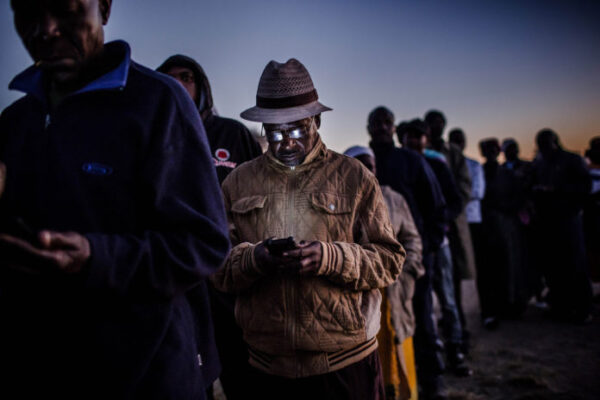PBS: Escaping Eritrea … [Read More...] about ካብ ውሽጢ ቤት ማእሰርታት ኤርትራ
The quiet rise of spy states
Murray Hunter | 5 Jun 2020 | Mail & Guardian

Few pro-democracy activists in Southern Africa need to be told that their governments don’t respect the right to privacy. Although the spying powers of governments in the region are dwarfed by those in the United States or China, there is growing concern that African governments may be listening in on conversations and private interactions of “troublemakers” — activists, journalists and critical voices.
A new report uncovers the extent to which national laws in the region enable such abuses or guard against them. As one of the researchers of this report, I was horrified to see how little protection there was for many citizens in the Southern African Development Community (SADC) countries against government spying, but not surprised.
In mapping out the basic features of the laws and policies that control states’ power to intercept communications and private data, most governments were not subject to nearly enough oversight and controls. Of the 16 SADC member states only five countries — Angola, Botswana, Namibia, South Africa and Zambia — have laws that require intelligence agencies to get a judge’s permission before spying on your communication. In Mozambique and Tanzania, even a police officer can intercept your communication without a judge’s permission.
Some countries don’t have a law regulating the government’s spying powers. But this doesn’t seem to have stopped the governments. In Malawi, for example, there was no clear law enabling the state to intercept users’ communications — despite years of legal action by pro-democracy activists, the state has rolled out a controversial network-monitoring programme that Malawians quickly nicknamed “the Spy Machine”. (The authorities say it is necessary to log every call and message between users to determine whether the cell phone companies are paying taxes on the resulting revenue).
Like most places in the world, Southern African spying laws give particularly weak legal protection for users’ call records, even though such information can reveal intimate details of someone’s personal and political life. In Zimbabwe, the courts have upheld the right of the police to seize a person’s phone records for even minor offences — sometimes without even needing a court order.
In Lesotho, Vodafone saw a worrying 592% increase in state requests for people’s call records over the four years for which statistics are available.
Clearly, there is a need to overhaul the laws across the region to protect people from digital spying.
But the research also shows that good laws are not enough. Even where countries have a relatively developed legal framework to prevent a state from abusing its spying power, there is often a big gap between law and reality. In Angola, for example it was noted that “a robust framework defending privacy and fundamental rights guaranteed by judicial intervention that in daily life is not respected”. In South Africa, too, although the spying laws have privacy protections in place, officials have flouted these to spy on journalists and political dissidents.
But there is cause for hope. The courts in South Africa are expected to rule on whether the national surveillance law — the Regulation of Interception of Communications and Provision of Communication-related Information Act (Rica) — is constitutional. If the courts decide it isn’t, this could set a new precedent for transparency and oversight of spying laws in the region.
Understanding the make-up of surveillance laws is particularly important if countries in the region introduce digital tracking as part of their response to the global Covid-19 pandemic, as many governments in the Global North have done.
In the context of global debates on privacy and the growing realisation of the importance of communications privacy as a democratic right, Africans need to grapple with the extent to which their governments have appropriate laws in places — and, above all, respect for those laws.
Read the report: A Patchwork for Privacy Mapping communications surveillance laws in southern Africa
